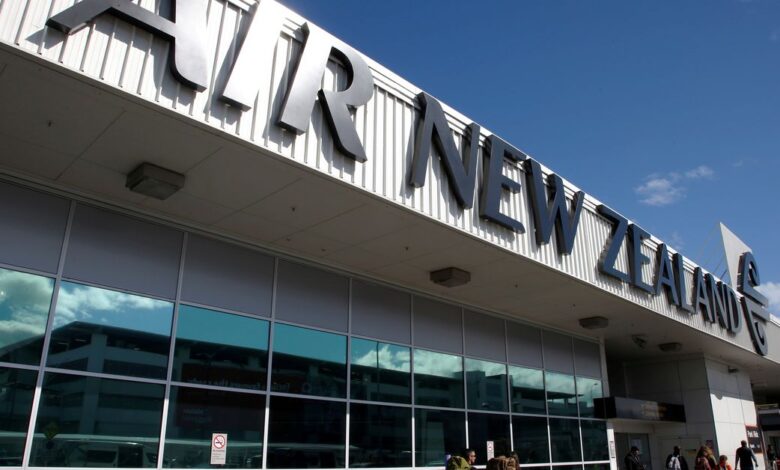Air New Zealand studying how to add low-emissions planes to fleet

Travellers stroll underneath an Air New Zealand signal at Auckland Airport in New Zealand, September 20, 2017. REUTERS/Nigel Marple/File Picture
Sept 16 (Reuters) – Air New Zealand Ltd stated on Thursday it was finding out the way it might use low-carbon applied sciences like electrical, hybrid or hydrogen powered planes to dramatically cut back emissions from shorter and regional flights as quickly as 2030.
The airline signed a memorandum of understanding with Airbus SE to analysis the influence hydrogen planes would have on Air New Zealand’s community, operations and infrastructure.
Airbus stated it’s hoping to carry a hydrogen aircraft to market by 2035 – a aim some trade officers and analysts consider to be bold.
This settlement brings us a step nearer to “seeing low carbon options in place for our shorter home and regional flights within the subsequent decade,” stated Air New Zealand Chief Government Greg Foran.
Airbus has already struck comparable hydrogen research offers with easyJet and SAS in Europe as airways world wide look to satisfy bold emissions targets consistent with authorities commitments.
Aviation accounts for round 2.5% of worldwide carbon emissions.
The European producer stated the settlement with Air New Zealand would assist it collect suggestions on airways’ expectations and preferences for configuration and efficiency for zero-emissions planes.
“We’re additionally speaking to a number of airways on comparable research,” stated a Airbus spokesperson.
It’s the newest environmental know-how initiative for Air New Zealand, which in 2018 partnered with turboprop producer ATR, part-owned by Airbus, to look at hybrid-electric regional plane.
Airbus final yr unveiled three visible ideas for hyrdogen-powered planes and set itself a deadline of 2035 to place a carbon-free industrial plane in service, a goal engine makers like Safran have described as bold.
The European planemaker says radical know-how is required to assist the trade meet local weather targets, however U.S. rival Boeing Co is extra cautious, saying sustainable liquid fuels will contribute most to efforts to decarbonise the aviation sector due to the infrastructure wanted to assist hydrogen.
Airbus in June advised European Union officers that the majority airliners will depend on conventional jet engines till no less than 2050, with zero-emission hydrogen planes primarily targeted on regional and shorter-range plane from 2035.
Reporting by Jamie Freed in Sydney; Modifying by Ana Nicolaci da Costa
:





